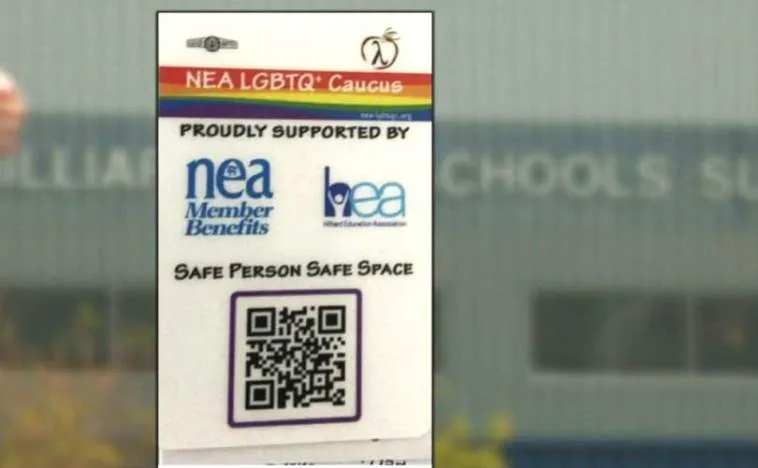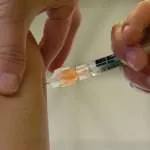(LifeSiteNews) The National Education Association (NEA) is promoting LGBT “sex” and lifestyle practices among school children through a new badge worn by educators and created by the NEA LGBTQ+ Caucus.
The organization’s “I’m HERE” initiative is a badge that can be worn by teachers to “tell everyone that you are a safe person with whom to discuss LGBTQ+ issues,” the website states. “Affirming LGBTQ+ youth couldn’t be easier than by identifying yourself as a safe and supportive person.”
Along with the printed message “I’m HERE,” the badge also includes a QR code that leads users to the explicit website. Although only worn by teachers or other public-school employees, the code is accessible to any student who may be speaking to an adult wearing the badge.
On Wednesday, conservative activist Christopher Rufo exposed the LGBTQ+ Caucus after it created the badge that “promotes a how-to guide for ‘anal sex,’ ‘bondage,’ rimming,’ domination,’ ‘sadomasochism,’ ‘muffing,’ and ‘fisting.’”
Rufo highlighted a particularly explicit resource listed on the website, which is an article from Teen Health Source and is a guide to “Queering Sexual Education.”
The article “promises to ‘empower youth’ and features a manual on ‘Sex Acts That Don’t Get Enough Play,’” Rufo wrote.
According to the resource, “Queering Sex Ed (QSE) is a project from Planned Parenthood Toronto, with the goal of developing a sex-ed resource with and for LGBTQ youth.”
“We recognize the need for an alternative sex education resource. It’s not okay that gaps are being left and our sexual experiences are being ignored: there’s so much opportunity in the queer world and that includes queer sex. Penis and vagina is one kind of sex, but it’s not the only kind of sex … We want to re-frame the sex that we have and the sex that we want to have as something positive. We want to see the kind of sex we have and want to have reflected in curriculum.”
The program is further described as “inclusive,” “accessible,” “asexual positive,” and that it “includes trans and cis people” and “doesn’t assume identity.”
Different sections of the program include a quiz to determine if the user is queer, a lesson on consent, body positivity, and “Sex Acts That Don’t Get Enough Play.”






